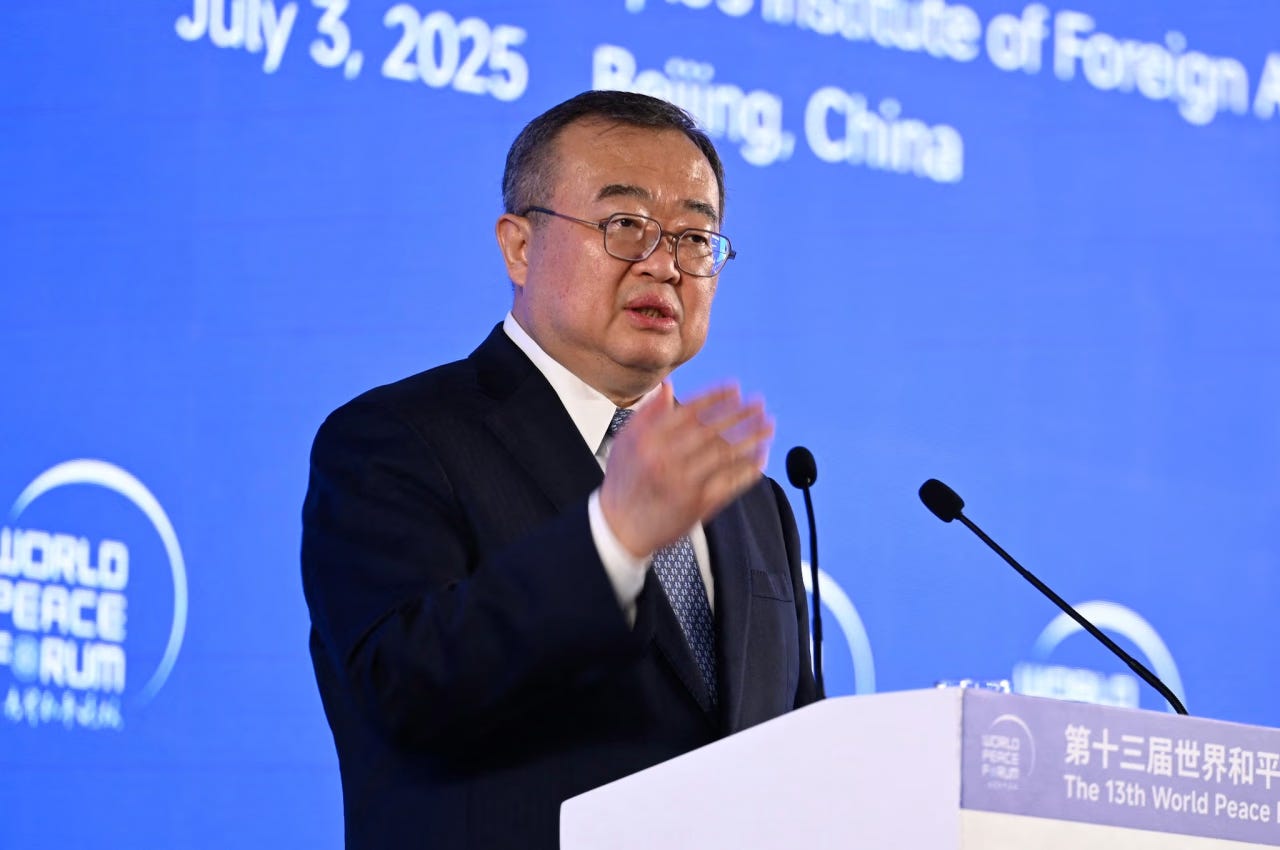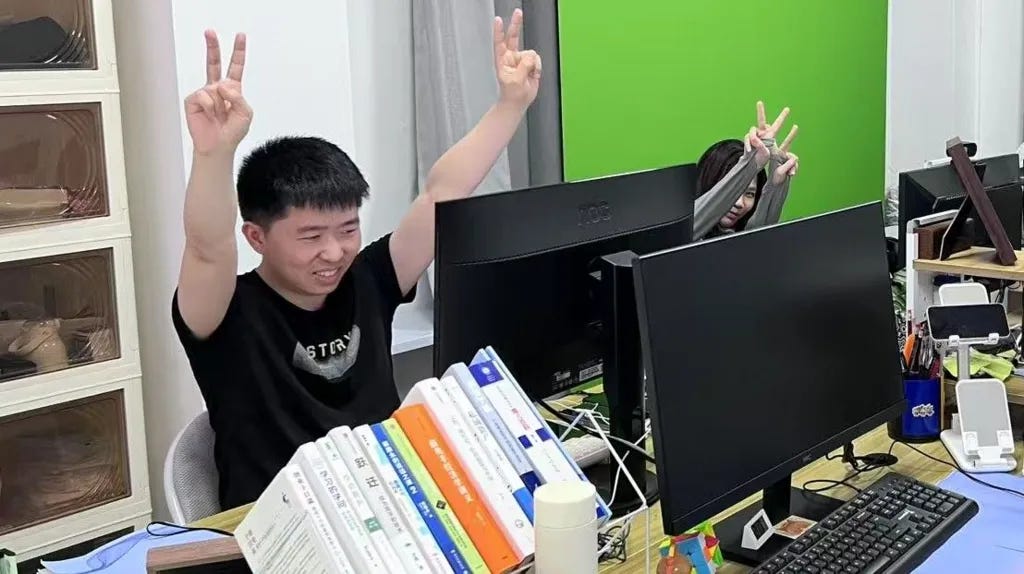China This Week: China to Send Top Envoy to India, Rare DF-100 Missile Footage Released, Senior Diplomat Detained
This week in China, we explore key shifts in its domestic and foreign policy landscape.
China Quote 🗩
“Both Cambodia and Thailand have shown they don’t want continued border conflicts and are willing to restore dialogue, China supports both sides to reopen border crossings to meet people’s needs.”
- Wang Yi, Foreign Minister, China
Economic Activity🏦
China Mulls Asking State-Run Firms to Buy Unsold Homes
Bloomberg reports that Beijing is considering directing centrally managed state-owned enterprises to purchase unsold housing stock from distressed developers. The move aims to ease China’s property glut and stabilize the struggling real estate market, though no final decision has been made. Such acquisitions could help reduce excess inventory but may raise concerns over state intervention and the financial burden on SOEs.
China Aims to Boost Consumption With Loan Subsidies
Caixin reports that China plans to roll out government-backed loan interest subsidies to encourage household spending on big-ticket items like homes, cars, and appliances. The move is part of a broader effort to stimulate domestic demand amid a sluggish post-pandemic recovery and weak consumer confidence, with local governments expected to tailor programs to regional needs.
China Defuses Its ‘Time Bomb’ Debt as US Hears Ticking Intensify
South China Morning Post reports that Beijing is easing local government debt risks through restructuring, tighter fiscal discipline, and targeted stimulus, while the US faces mounting concerns over its own rising debt costs. Analysts say China’s centralized control allows for swifter interventions, contrasting with the political gridlock hampering US fiscal reforms.
U.S. to Take 15% Cut of Nvidia and AMD AI Chip Sales to China
The New York Times reports that Nvidia and AMD will pay the U.S. government 15% of revenue from AI chip sales to China under a deal with the Trump administration. The arrangement follows approval for Nvidia to sell a modified H20 chip to China, though licenses were withheld until the revenue-sharing agreement was reached — an unusual move in U.S. tech policy toward China.
China Pressures Firms to Shun Nvidia H20 Chips
Bloomberg reports that Beijing has urged companies, especially in sensitive sectors, to avoid Nvidia’s H20 processors, complicating U.S.-approved AI chip sales tied to a 15% revenue cut for Washington. The move, also affecting AMD’s MI308, aligns with China’s push for domestic alternatives and follows state media claims of security risks in U.S. hardware.
China’s ‘Air Silk Road’ Links Xinjiang to Europe Amid Forced Labour Concerns
Politico reports that over 40 new cargo routes now connect Xinjiang to Europe, carrying goods in sectors at high risk of Uyghur forced labour. The Uyghur Human Rights Project warns this expansion threatens EU and UK supply chain integrity, despite new forced labor regulations. China denies the allegations, calling them politically motivated.
China Sanctions 2 Lithuanian Banks in Retaliation for EU Curbs
Financial Times reports that Beijing has blacklisted Lithuania’s Urbo Bankas and Mano Bankas, barring Chinese entities from transactions with them, after the EU sanctioned two Chinese lenders over alleged Russia trade links. The move marks the first EU targeting of foreign banks over the Ukraine war and comes amid wider tensions over tariffs, Taiwan, and EU pressure on China to curb support for Moscow.
Lithium Argentina, Ganfeng Launch Major Joint Venture
Finimize reports that Lithium Argentina will merge key projects with China’s Ganfeng Lithium, forming a joint venture targeting 150,000 tonnes of lithium carbonate annually. Ganfeng will hold a two-thirds stake, provide $130 million in financing, and build on the pair’s Cauchari-Olaroz success, positioning the venture to tap surging EV battery demand despite recent price volatility.
Chinese Firms Shift to Indonesia to Dodge US Tariffs, Tap Local Market
Reuters reports that Chinese companies are flocking to Indonesia to avoid US tariffs of over 30%, benefiting from the lower 19% rate and the country’s vast consumer market. Investment from China and Hong Kong rose 6.5% year-on-year in H1 2025 to $8.2 billion, with demand pushing industrial land prices up 15–25%. Firms from toy makers to EV manufacturers are seeking quick setups, particularly in West Java, despite challenges like red tape and infrastructure gaps.
Inside China🐉
China Detains Senior Diplomat Who Helped Advance U.S. Relations
The Wall Street Journal reports that Liu Jianchao, head of the Communist Party’s International Department and a leading candidate for foreign minister, has been detained for questioning after returning from an overseas trip. The reason for his detention remains unclear. Liu, a veteran diplomat and former anti-corruption official, was praised in Washington for his role in stabilizing U.S.-China relations but may have drawn political scrutiny in Beijing. His detention marks the highest-level known probe of a Chinese diplomat since Qin Gang’s removal in 2023.
China Releases Rare DF-100 Missile Footage in Show of Strength
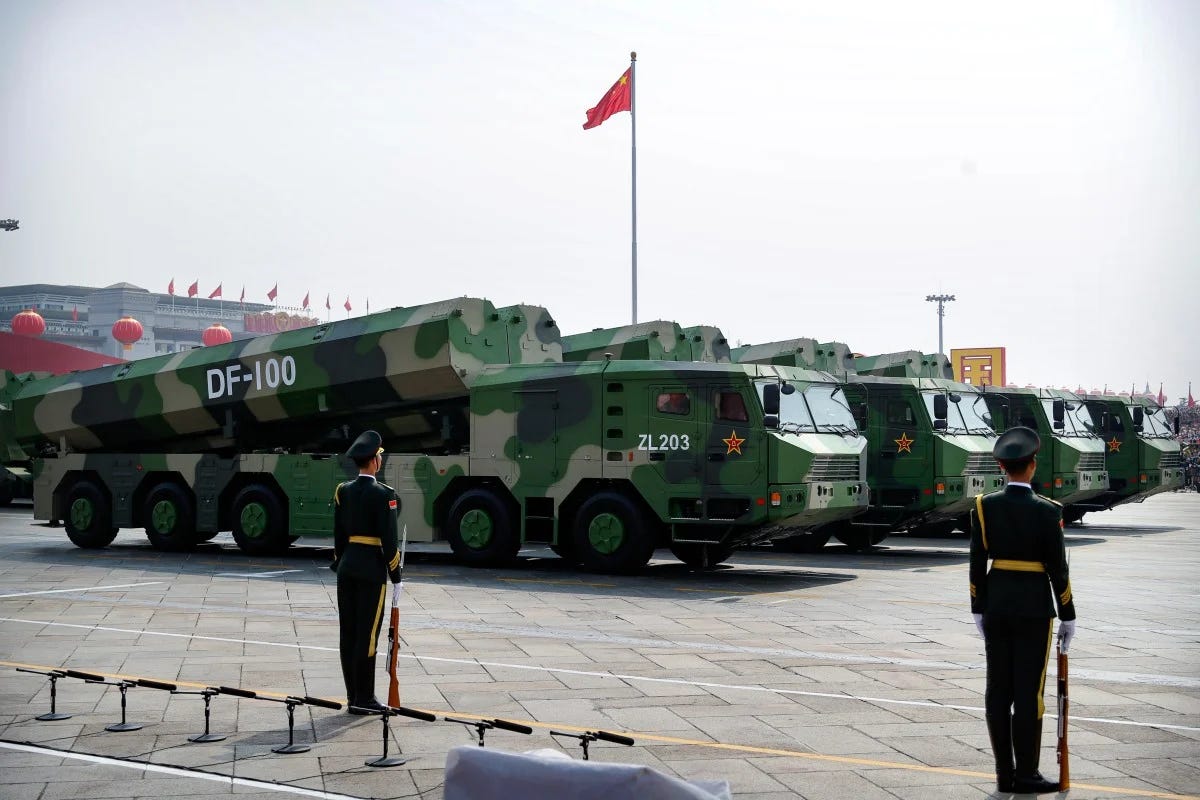
South China Morning Post reports that Beijing has aired new footage of its DF-100 supersonic cruise missile, highlighting its mobility, urban launch capability, and 3,000–4,000 km range. Analysts say the release aims to deter the US and showcase the PLA’s ability to strike key Pacific targets despite recent military scandals.
China’s Jobless Youth Pay to “Pretend to Work”
BBC reports that with youth unemployment above 14%, some young Chinese are paying to sit in mock offices to simulate having jobs. These “pretend work” spaces, now in multiple cities, offer desks, internet, and social interaction — sometimes used to appease parents or provide fake internship proof — while participants job hunt, freelance, or build skills.
China Retools Its Universities for the New Economy
Caixin reports that Beijing is overhauling higher education to align with strategic sectors like semiconductors, AI, and green tech. Universities are being directed to add specialized majors, deepen industry partnerships, and accelerate commercialization of research. The push aims to boost innovation capacity and produce talent for China’s transition to a tech-driven, self-reliant economy.
China and the World🌏
China, India in Talks to Resume Border Trade After 5-Year Freeze
Bloomberg reports that Beijing and New Delhi are discussing reopening the Nathula Pass trade route in Sikkim, closed since the 2020 border clash in the Galwan Valley. The talks signal a potential thaw in ties, with both sides exploring gradual resumption of goods exchange as part of broader confidence-building measures.
China Cuts Ties with Czech President over Dalai Lama Meeting
Euronews reports that Beijing has suspended all engagement with Czech President Petr Pavel after he met the Dalai Lama during a private trip to India. China said the meeting violated political commitments, harmed its sovereignty, and lodged formal protests. Ties between the two countries have worsened in recent years over Taiwan and human rights issues.
Philippines Protests ‘Dangerous’ Chinese Actions at Scarborough Shoal
Reuters reports that Manila accused Chinese vessels of “dangerous manoeuvres” during a supply mission for Filipino fishermen, leading to a collision between two Chinese ships. The Philippines offered aid to the damaged vessel and urged adherence to maritime rules, warning that such confrontations will continue amid ongoing South China Sea disputes.
US Warships Patrol Near Scarborough Shoal After Chinese Collision

AP News reports that the US deployed two warships near Scarborough Shoal days after a Chinese navy ship collided with a Chinese coast guard vessel while blocking a Philippine patrol. The USS Higgins and USS Cincinnati conducted freedom-of-navigation operations about 30 nautical miles from the shoal, shadowed by a Chinese vessel. Japan, Australia, and New Zealand voiced concern, while the Philippines accused China of “dangerous maneuvers” and warned of miscalculation risks.
Intel CEO Lip-Bu Tan Pressured Into Lobbying Role to Sway Trump
Bloomberg reports that Intel chief Lip-Bu Tan will meet President Trump after facing calls for his resignation over past China-linked investments. The political backlash follows Intel’s cautious stance on U.S. factory expansion, which clashed with Trump’s manufacturing push. Tan, four months into the role, now faces the challenge of balancing Intel’s turnaround with Washington’s semiconductor nationalism.
Washington Plans Pushback Against China’s Overseas Military Expansion
Intelligence Online reports that Congress is mobilising the U.S. intelligence community, Pentagon, and State Department to counter Beijing’s growing military footprint abroad. The strategy will test Washington’s political and diplomatic reach, with a focus on curbing the PLA’s influence in key regions.
UK-Based Hong Kong Activist Faces Chinese Bounty but Refuses to Stay Silent

The Guardian reports that 19-year-old Chloe Cheung, a Leeds-based pro-democracy activist, has been placed under a lifetime HK$1 million bounty by Hong Kong authorities for “incitement to secession” and “collusion with foreign forces.” Targeted with harassment, surveillance, and social isolation, Cheung says the bounty is meant to intimidate critics abroad but vows to keep speaking out for a free Hong Kong.
Tech in China🖥️
China Creates New Visa for Young STEM Talent in National Tech Drive
SCMP reports that Beijing will launch a “K-type” visa on October 1 for young foreign science, technology, engineering, and mathematics professionals. Aimed at boosting innovation and self-reliance, the visa will target graduates from “renowned” universities or researchers in top institutions, with streamlined applications and no need for a Chinese employer sponsor. The move complements talent recruitment programs like the Talented Young Scientist Programme and contrasts with the US, where funding cuts and revived China Initiative concerns have prompted some scientists to leave.
Chinese Researchers Use AI to Create Array of 2,000 Neutral Atoms
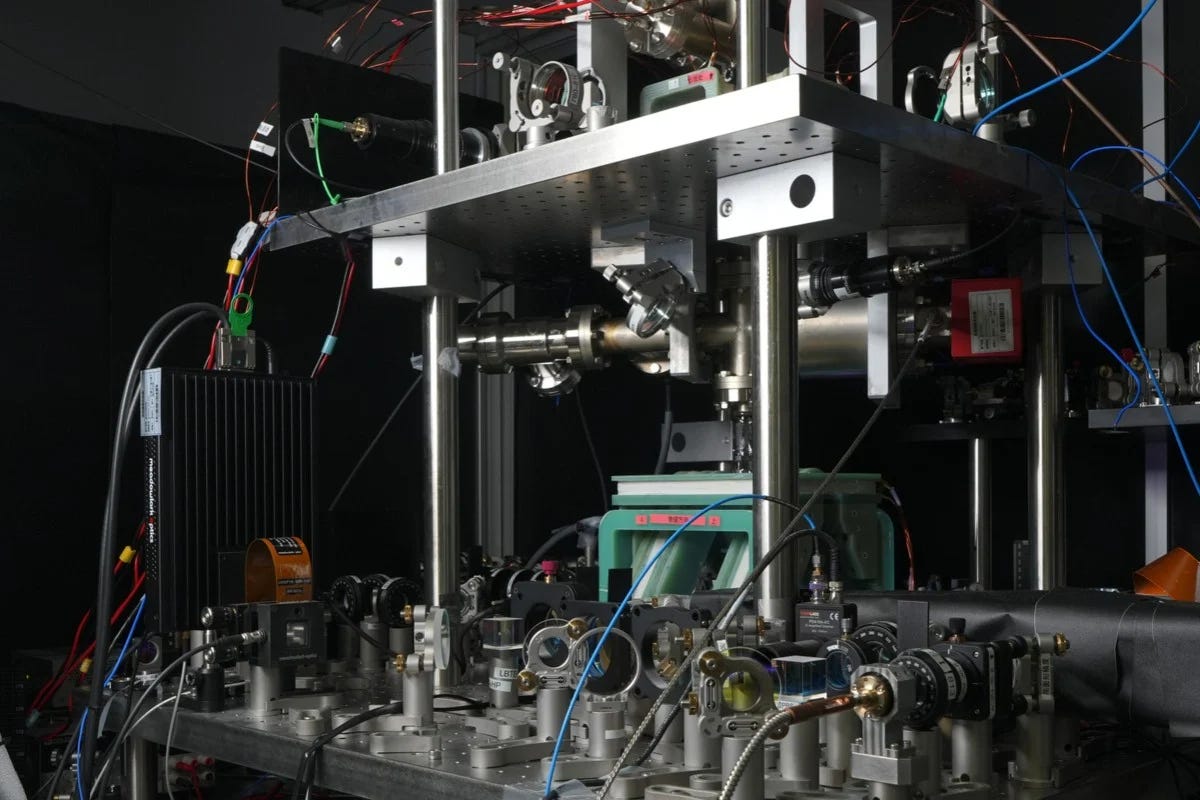
HPCwire reports that scientists at the University of Science and Technology of China have developed an AI-driven method to rapidly rearrange neutral atoms, assembling defect-free 2D and 3D arrays of up to 2,024 rubidium atoms in just 60 milliseconds. The technique, which uses optical tweezers guided by AI, could scale to tens of thousands of atoms with current technology—boosting prospects for neutral atom–based quantum computers, which offer long coherence times, all-to-all connectivity, and room-temperature operation.
China Boosts Hybrid Crop Development Speed by 400% with AI-Driven Robotic Breeding
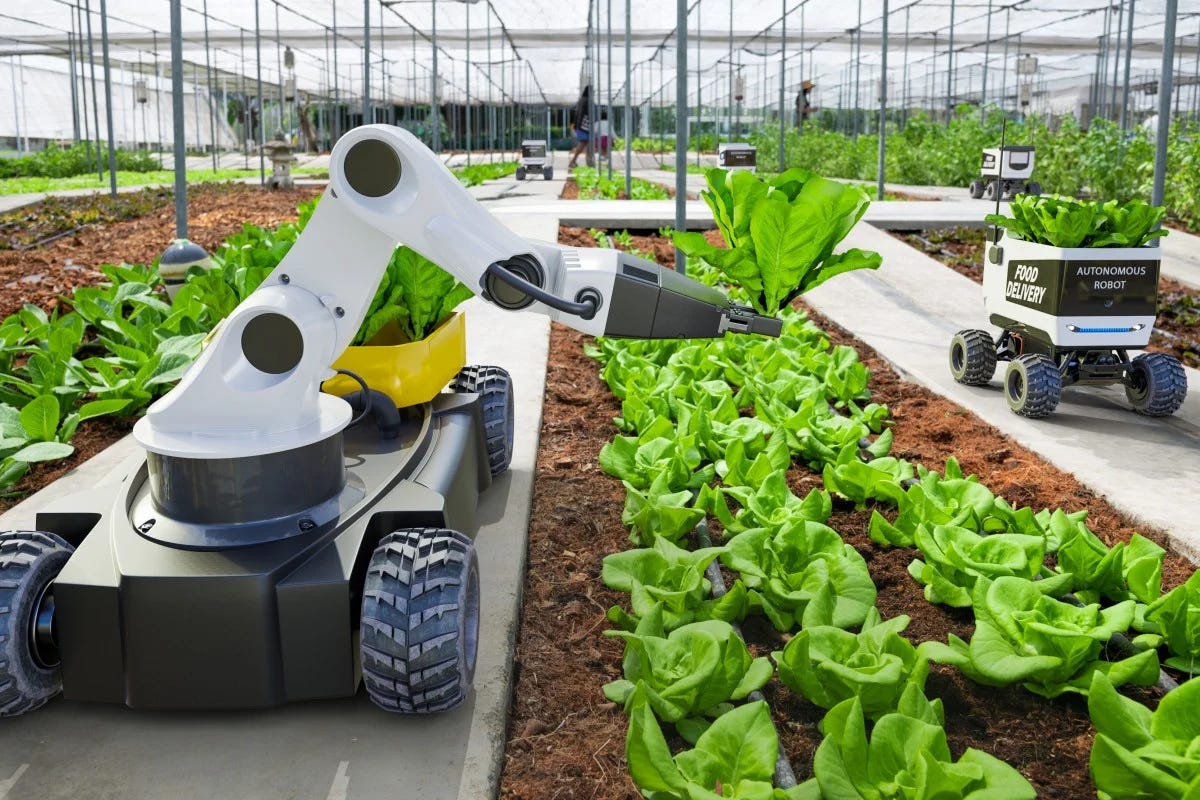
South China Morning Post reports that Chinese scientists have cut the hybrid crop breeding cycle from five years to one by combining “robot-friendly” gene editing with AI-powered cross-pollination robots. The system, developed by the Chinese Academy of Sciences, Shanghai Jiao Tong University, and Tsinghua University, uses male-sterile plants with protruding stigmas to enable rapid, automated pollination—tripling speed over manual methods and reducing labour costs. Tested in tomatoes and soybeans, the approach could accelerate creation of disease-resistant, high-flavour crop varieties for precision agriculture.
Decypher Data Dive📊
Image of the Week📸
People flock to tourist sites across China for their summer holidays

— — —
Data By Bhupesh
Edited By Aurko
Produced by Decypher Team in New Delhi, India


